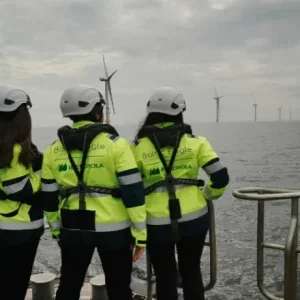Supporting local research and development strengthens our region in both the short and long-term, said Brad Trost, Member of Parliament for Saskatoon-Humboldt. This green investment is just one example of our Government’s actions to support innovation, bring new ideas to the marketplace, and create jobs.
PAMI is very excited about the opportunity to conduct this research project, said Jim Wasserman, Vice President of PAMI’s Saskatchewan Operations. Though there is a great potential in this technology, producers and agri-industry need to have questions answered before they decide to make investments. This research will allow PAMI to help them with those decisions and, in so doing, deliver on our mandate of applying technology for agriculture.
Biodigesters convert waste materials, such as manure, straw, by-products from cattle feedlots or hog barns, household garbage, etc. to a biogas suitable for energy production. These gases-primarily methane and carbon dioxide-can be converted to energy, and the spent feedstock can also be utilized as a nutrient-rich compost applied as fertilizer to farmland. The purpose of PAMI’s research is to determine the financial viability of municipalities, intensive livestock operations, and/or individual cattle and hog operators using solids-content anaerobic digesters to produce their own sources of clean energy for home-heating or powering electrical grids.
Pound-Maker Agventures will work with PAMI to provide agri-industry feedstock for the digester. The Western Beef Development Centre will work to provide additional feedstock for the digester. The Saskatchewan Research Council (SRC) will design the biogas demonstration system.
The Government of Canada is investing $350,000 so that PAMI can develop a pilot-scale, solids-content anaerobic digester. Western Economic Diversification’s investment is allocated to the purchase of materials, supplies and to contracting technical expertise to assist with project development.
Western Economic Diversification in partnership with the provinces, industry associations, and communities promotes the development and diversification of the western economy, coordinates federal economic activities in the West, and represents the interests of western Canadians in national decision making.






